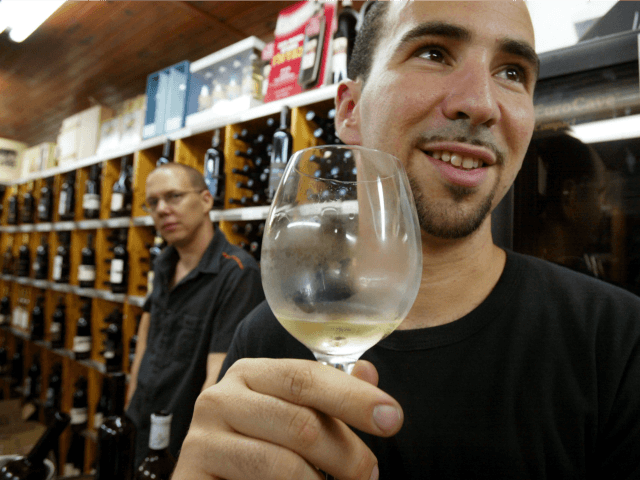TEL AVIV – In a move that has been blasted as illegal by critics, Canada’s Federal Court on Monday ruled that Israeli wines from West Bank settlements can no longer be labeled “Made in Israel.”
In her ruling, Judge Anne L. Mactavish determined that saying wines produced in the West Bank are Israeli made is “false, misleading and deceptive.” The ruling is an ideological victory for the anti-Semitic, anti-Israel Boycott, Divestment and Sanctions (BDS) Movemen.
The settlements “are not part of the State of Israel,” the ruling said, and added that “Canadian federal legislation requires that food products [including wines] that are sold in Canada bear truthful, non-deceptive and non-misleading country of origin labels.”
West Bank Jewish-made wines labeled as “made in Israel” do not fall “within the range of possible, acceptable outcomes which are defensible in respect of the facts and law,” the ruling said. “It is, rather, unreasonable.”
In 2015, the European Union also determined that goods produced in the settlements must not be labeled as made in Israel in a move that was denounced by Israeli officials as being comparable to the Nazi boycott of Jewish goods and shops in the 1930s.
Canadian attorney Dimitri Lascaris, whose client David Kattenburg — a self-declared wine lover — first brought the case, called on Canada’s government not to appeal the court’s decision. “It is our fervent hope that the government of [Canadian Prime Minister] Justin Trudeau will accept the court’s well-reasoned decision and will not waste yet more taxpayer dollars by appealing this decision and by continuing to facilitate Israel’s naked theft of occupied Palestinian land,” he said.
Pro-Palestinian activists lauded the ruling as “historic.”
Canada’s B’nai Brith, which was deemed an “intervener” in the case, said it was “disappointed” by the ruling.
“In our view, it is reasonable and not at all misleading to label wines produced by Israeli citizens in Israeli-controlled territory as ‘Products of Israel.’” It added that “We will be asking the attorney-general to appeal this decision.”
Eugene Kontorovich, a US-Israel professor of international law, said the ruling contravened international and Canadian law.
“International law has to be applied internationally or it’s just discrimination. I would hope that the Canadian government challenges this ruling, as it is not consistent with any international law. The Canadian free trade agreement clearly makes products from Judea and Samaria part of Israeli customs territory. Canada labels wines from occupied Nagorno-Karabakh “made in Armenia” — why not label Judea and Samaria as Israel?” Kontorovich said.
“The sole basis of the ruling was that made in Israel labeling confuses consumers. But the court cited absolutely no evidence that any substantial number of consumers who might care one way or another about a product’s origin in Judea and Samaria are unaware of that fact.”
The Friends of the Simon Wiesenthal Center also expressed disappointment over the ruling. “The Canadian Jewish community is very disappointed in today’s ruling. Claiming West Bank wines can’t be labeled ‘Made in Israel’ effectively endorses the antisemitic BDS campaign,” said the group’s head, Avi Benlolo, in a statement, referring to the anti-Israel Boycott, Divestment and Sanctions movement.

COMMENTS
Please let us know if you're having issues with commenting.